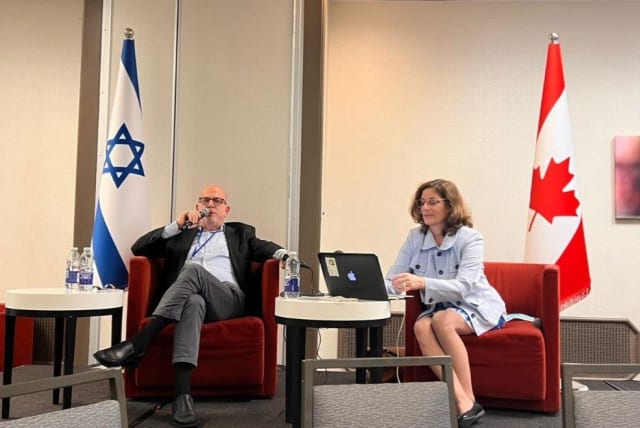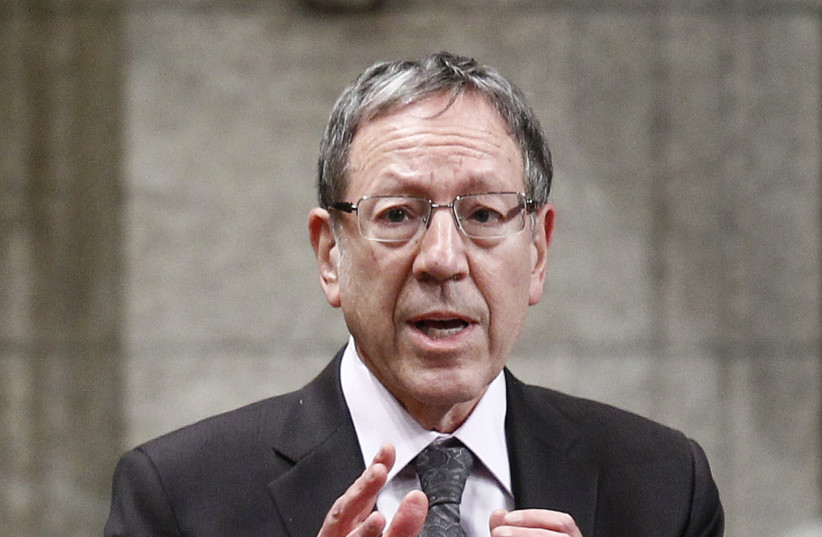Israel copying Canada's override clause? 'Misleading' says Irwin Cotler

Though the clause may appear attractive, it comes with implications.
Claims that the proposed Override Clause is simply copying similar Canadian legislation is both "uninformed and misleading," former justice minister and ex-attorney-general of Canada Irwin Cotler said at The Jerusalem Democracy 2023 Conference on Tuesday evening.
"I've been intrigued by the reference to Canada's override clause," said Cotler.
Speaking on a panel with Hebrew University Law Professor Yoav Dotan and moderated by The Post's Zvika Klein, Cotler explained that Canada's Notwithstanding Clause was introduced as part of the country's Bill of Rights and Freedoms, and was subject to such a civil rights regime.
Limits to the clause
The Notwithstanding Clause had several limitations on the topics it could be used in relation to, had a five-year limit, and was subject to judicial review. While Canada's provinces would use it, the federal government said it never would.
Cotler said he saw the matter of how judicial review in Israel would change under the proposed legal regime as an even more serious matter. Requiring a full court and unanimous decision would effectively eliminate judicial review, as there would never be full agreement between so many judges.
The former Canadian justice minister also noted on the matter of how the judge selection committee would change to give more power to politicians, that during the his tenure he strived to make the Canadian system -- in which judges were selected by the executive branch -- more like the current Israeli system.
Cotler agreed with Dotan, who said that while there was room for improvement in the system, it had to be done in a proper organized way. Dotan even said that he even agreed with some provisions of the reform, but challenged the process.
"The problem is not so much about constitutional technicalities, most people agree that we need some reforms," said Dotan.
Dotan questioned the "constitutional revolution or counter-revolution," which he described as part of a broader campaign by the coalition to change Israel. The legal reforms were coming at the same time as pushes to privitize public media and change in the autonomy of law enforcement. He cautioned that just because the coalition won a majority in the election, doesn't mean it has a mandate to make such sweeping changes of Israeli society.
"I think many people are quite concerned and I don't think it's limited to the legal profession," said Dotan, who noted that the Israeli business, hi-tech and bureaucracy sectors had joined the protest. The government didn't expect such a backlash, he said.
Jerusalem Post Store
`; document.getElementById("linkPremium").innerHTML = cont; var divWithLink = document.getElementById("premium-link"); if (divWithLink !== null && divWithLink !== 'undefined') { divWithLink.style.border = "solid 1px #cb0f3e"; divWithLink.style.textAlign = "center"; divWithLink.style.marginBottom = "15px"; divWithLink.style.marginTop = "15px"; divWithLink.style.width = "100%"; divWithLink.style.backgroundColor = "#122952"; divWithLink.style.color = "#ffffff"; divWithLink.style.lineHeight = "1.5"; } } (function (v, i) { });

